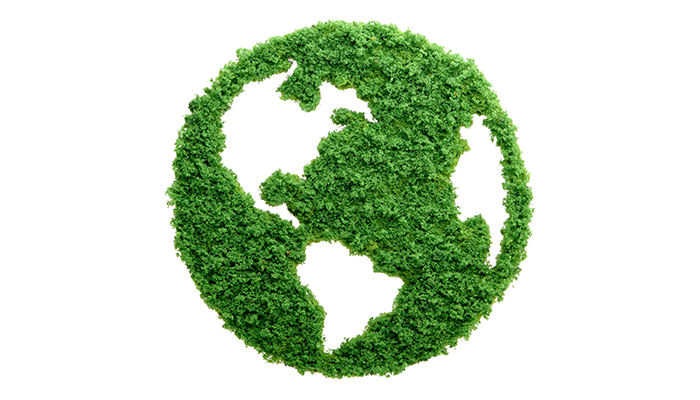Tiny Ways You Can Save the World
How to environmentally sustainable on our unstable Earth.
Humans have a history of not caring too much about the well being of the planet and how what we do affects the planet, however in recent years shocking statistics have shown us how we are negatively impacting the planet. People have started changing their ways.
According to NASA 2016 was the hottest recorded year, and eight months out of the year — from January through September, with the exception of June — were the warmest on record for all of those months.
NASA also listed on their website since the start of the Industrial Revolution, the acidity of surface ocean waters has increased by 30 percent. Humans are releasing more carbon dioxide into the atmosphere and more is being absorbed into the oceans. The amount of carbon dioxide absorbed by the top layer of the oceans is increasing by 2 billion tons per year.
Stats like these and so many more have made people from all around the world realize we need to take action now; it is our job to care for the planet we have already hurt for so long.
Helping does not have to be hard, you do not need to be making revolutionary changes to your life in order to improve the planet. Small changes are a step in the right direction.
Plastic Straws is something that has been brought to people’s attention, and the ways it harms the environment is not easy to ignore any longer.
According to USA Today, 500 million single-use plastic straws are used and thrown away every day in the U.S. alone.
A recent trend, used as a way to help with this plastic straw issue is no longer using regular plastic straws and buying a reusable metal, bamboo stick or glass straw.
Consuming less meat, or not eating meat at all, is another small, yet effective way you can help, meat production is one of the most harmful to the environment. According to a Stanford University report released in 2010, 1.7 billion animals are used in livestock production worldwide and occupy more than one-fourth of the Earth’s land.
Not only is raising livestock taking up huge amounts of land, but according to the same report mentioned before, done by Stanford, the livestock sector, including feed production and transport, is responsible for about 18 percent of all greenhouse gas emissions worldwide.
According to the co-editor, Henning Steinfeld of the United Nations Food and Agriculture Organization, feed production also requires intensive use of water, fertilizer, pesticides and fossil fuels.
Not only does the meat industry waste huge amounts of water: so do you. Reduce your water waste. According to the Washington Post, Americans waste 1 trillion gallons of water each year due to leaky kitchen and bathroom faucets, malfunctioning toilets, errant sprinkler systems and much more. Simply fixing your leaking faucets can make a huge difference.
The United States Environmental Protection Agency says the average family can save 13,000 gallons of water and $130 in water costs per year by replacing all old, inefficient toilets in their home with WaterSense labeled models.
If you believe you are already an environmentally sustainable person, or plan to become one, another way to help is to speak up about the issue. Inform others of the things you know and the way they could also help.
Our planet is suffering because of the things humans have done to it for so long. It is time to change, and you can become a part of the change.

Emily Perez is an 18-year-old freshman at Fresno City College. Perez is a journalism major, who hopes to transfer to Fresno State. Still a bit unsure about...






